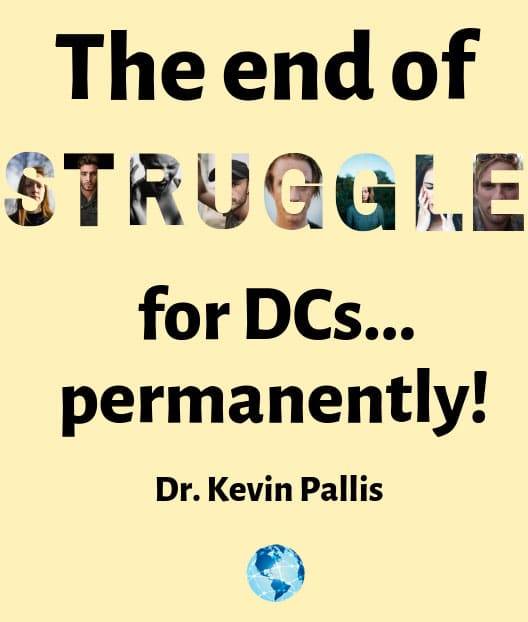Care Plans to Die For

Your palms are sweaty and your heart is racing as you ready yourself for battle. You’ve done the best exam you are capable of, taken a great set of digital films, you listened carefully during the case history and compiled a great set of recommendations…you are now ready to start your report of findings. The door creaks open as your CA leads in the new patient for their recommendations.
It almost feels like you’re in a courtroom and the foreman of the jury is handing the verdict to the judge. You can’t tell what the verdict is by their body language. All rise in the courtroom and here comes the verdict. Why does it feel this way to me? I wonder how they feel.
As the patient walks in, they look stiffer and more stoic than I remember during the exam. It’s almost like they have their game face on. Their body language is definitely on the defensive side. You immediately launch into your best spiel about the technical aspects of their condition (doctor talk) not noticing the glazed over (not impressed, zoned out) look in their eyes. When you mention your recommendations, there is a heaviness to the air and the patient interrupts you with why they can’t follow through with your recommendations. You talk about the discounts you offer and easy payment plans and they still stick to the reasons why they can’t comply.
Is this insanity going to go on for the rest of my career… just throwing @*^& on the wall and hoping it will stick? Can’t somebody decode the mystery?
Care plans (or recommendations) extend across the board from “we’ll see how it goes” to year end plans. Some doctors even forgo having an examination and throw the patient on the table and have at it.
Which one is right for you?
The National average of visits in a DC’s office hovers at less than 10. Your number one expense in your office is the cost to acquire a new patient.
Your patient pool is shrinking and the competition is fierce when you think of people who are looking for a miracle in a few short visits.
Two ways of looking at the same problem
Do you succumb to the dictates of what others are doing or do you give recommendations that you truly believe will benefit the patient?
Do you blend in with others (a face in the crowd DC) or do you have a unique identity?
The answer to the question is revealed in your intent for helping this person. Is it insurance guidelines, removing symptoms, making money, or family health and wellness?
There is no right or wrong; you’re either in integrity with your beliefs or you are out of integrity with your beliefs.
What types of recommendations are popular today?
Year end plans are popular today, but most patients won’t re-up for the next year which can point to only one thing…the patient education was not enough and there was too much focus on symptoms only and discounts for paying up front. There is nothing wrong or right with this vehicle, it just leans heavily on salesmanship.
Gym memberships are a camouflaged attempt to let people ‘have it their way.’ The personality type of the doctor that uses this method is a people pleaser all the way with very little tolerance for confrontation. In the past these were called Burger King DCs. Patients tell the doctor how many times they want to come in. The economics and the respect factor for the doctor is sorely lacking. There are lots of friendships spoken here, very little leadership.
“We’ll see how it goes.” The doctor bases the frequency of visits on ‘how the patient feels’. This usually yields very low patient visit average. Sometimes the patient only comes in for just a few visits.
3 month segments of care. Millennials and Gen X’s can accept 90 day increments. There is finiteness, an end point in sight and the patient is always in charge of their participation level. Some of the most successful offices in the world use these 90 day increments. The patient decides to comply with the recommendations or not. However, they don’t make up their own recommendations. This office emphasizes cooperation, a partnership between doctor and patient.
Choose wisely grasshopper
Your care plans or recommendations reflect who you are as a DC. Most DCs do care plans they saw online or base them off of what insurance will pay for. Most DCs don’t know they have the freedom to choose their recommendations. When your recommendations match up with your value for Chiropractic your office will grow like it never has before.


